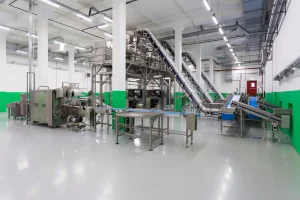In the realm of fabrication machinery supply businesses, maintaining integrity is crucial. Fabrication machinery suppliers play a vital role in supporting manufacturing and construction industries. However, upholding ethical practices in this industry can be challenging.
This article explores the concept of fabrication machinery suppliers ethics and emphasizes the significance of integrity in their operations. By adhering to ethical standards, suppliers can establish trust, foster long-term relationships with clients, and contribute to the industry’s growth.
Throughout this article, we will discuss the key principles that should guide fabrication machinery suppliers in their decision-making processes, including transparency, honest product representation, fair pricing, and timely delivery. Embracing these ethics ensures that suppliers’ operations align with the highest standards of integrity.
Key Takeaways
- Upholding integrity builds trust among customers and fosters a sense of belonging within the business community.
- Ethical practices ensure honesty, transparency, and fairness in business operations.
- Treating customers, employees, and competitors with respect and fairness is crucial.
- Ethical practices contribute to the reputation and sustainability of the industry.
The Importance of Ethical Practices in Fabrication Machinery Supply
In the realm of fabrication machinery supply, the importance of ethical practices cannot be overstated. Upholding integrity in this industry is crucial to building trust among customers and fostering a sense of belonging within the business community.
Ethical practices ensure that fabrication machinery suppliers conduct their business operations with honesty, transparency, and fairness. By adhering to ethical standards, suppliers demonstrate their commitment to delivering high-quality products and services while maintaining a level playing field for all stakeholders.
This includes treating customers, employees, and competitors with respect and fairness, avoiding conflicts of interest, and practicing responsible sourcing and manufacturing. Ethical practices also contribute to the overall reputation and sustainability of the fabrication machinery supply industry, as businesses that prioritize ethics are more likely to attract loyal customers and establish long-term relationships based on trust and mutual respect.
Common Ethical Challenges Faced by Fabrication Machinery Suppliers
Fabrication machinery suppliers encounter various ethical challenges as they strive to uphold integrity in their business operations. These challenges include:
- Ensuring fair and transparent pricing: Suppliers must resist the temptation to overcharge customers or engage in price fixing, and instead, provide honest and competitive pricing.
- Maintaining product quality: Suppliers must resist the temptation to cut corners or use substandard materials, and instead, ensure that the machinery they provide meets the highest quality standards.
- Avoiding conflicts of interest: Suppliers must disclose any relationships or partnerships that could compromise their objectivity and make decisions solely based on the best interests of their customers.
- Respecting intellectual property: Suppliers must respect copyright and patent laws, avoiding the unauthorized use or distribution of proprietary information or designs.
- Providing accurate information: Suppliers must not misrepresent their products or make false claims about their capabilities, ensuring that customers have access to accurate and reliable information.
Strategies to Uphold Integrity in Fabrication Machinery Supply Businesses
To maintain a high level of integrity in fabrication machinery supply businesses, suppliers can implement strategic measures. One effective strategy is to establish a code of ethics that outlines the principles and values that guide the company’s operations. This code should emphasize honesty, transparency, and fairness in all business dealings.
Additionally, suppliers can conduct regular training sessions to educate employees about ethical conduct and provide them with the tools to make ethical decisions.
Another important strategy is to establish strong relationships with customers based on trust and mutual respect. This can be achieved by delivering high-quality products, providing accurate information about the machinery, and promptly addressing any customer concerns or complaints.

Building Trust and Transparency With Customers and Stakeholders
Building trust and transparency with customers and stakeholders is essential for maintaining ethical practices in fabrication machinery supply businesses. When businesses prioritize trust and transparency, it not only fosters a positive working relationship with customers but also creates a sense of loyalty and commitment from stakeholders.
Here are five key strategies to build trust and transparency in this industry:
- Clearly communicate product specifications and pricing to customers
- Provide accurate and honest information about the capabilities and limitations of the machinery
- Establish open lines of communication and respond promptly to customer inquiries and concerns
- Implement fair and transparent pricing policies without hidden fees or charges
- Engage in ethical business practices, such as honoring warranties and providing reliable after-sales support
The Long-Term Benefits of Ethical Behavior in the Fabrication Machinery Supply Industry
Embracing ethical behavior in the fabrication machinery supply industry brings about long-term advantages for businesses. By upholding integrity and conducting business in an ethical manner, companies can establish a reputation for trustworthiness and reliability. This, in turn, leads to increased customer loyalty and repeat business.
When customers feel confident that they are working with an ethical supplier, they are more likely to choose that supplier over competitors. Additionally, ethical behavior fosters positive relationships with stakeholders, including employees, suppliers, and partners. This can result in improved collaboration, better supplier relationships, and increased employee morale and productivity.
Furthermore, ethical behavior can enhance a company’s brand image and attract socially-conscious customers who value ethical practices.
Frequently Asked Questions
What Are Some Examples of Unethical Practices in the Fabrication Machinery Supply Industry?
Examples of unethical practices in the fabrication machinery supply industry include false advertising, selling counterfeit or substandard products, price-fixing, bribery, and failure to provide proper maintenance and support. These practices undermine trust and integrity in the industry.
How Can Fabrication Machinery Suppliers Overcome Common Ethical Challenges?
Fabrication machinery suppliers can overcome common ethical challenges by implementing robust ethical guidelines, conducting regular training and education programs, fostering a culture of integrity and transparency, and implementing strong oversight and accountability mechanisms.
What Strategies Can Be Implemented to Ensure Integrity in Fabrication Machinery Supply Businesses?
To ensure integrity in fabrication machinery supply businesses, implementing strategies such as transparent communication, strict adherence to ethical standards, thorough supplier vetting processes, and regular audits can help uphold the highest level of professionalism and trustworthiness in the industry.
How Can Fabrication Machinery Suppliers Build Trust and Transparency With Their Customers and Stakeholders?
Fabrication machinery suppliers can build trust and transparency with their customers and stakeholders by consistently delivering high-quality products, providing clear communication and documentation, offering fair pricing and warranty terms, and demonstrating ethical business practices in all aspects of their operations.
What Are the Long-Term Benefits of Practicing Ethical Behavior in the Fabrication Machinery Supply Industry?
Practicing ethical behavior in the fabrication machinery supply industry brings numerous long-term benefits. It fosters trust and credibility with customers and stakeholders, enhances reputation, promotes sustainable growth, and ensures compliance with legal and regulatory requirements.
Conclusion
In conclusion, upholding ethical practices in fabrication machinery supply businesses is crucial for maintaining trust, fostering long-term relationships, and contributing to the growth and sustainability of the industry.
By adhering to principles such as transparency, honesty, fair pricing, and timely delivery, suppliers can establish themselves as reputable and trustworthy. This ensures that their operations align with the highest standards of integrity, ultimately benefiting both their customers and stakeholders.
You May Also Like:

